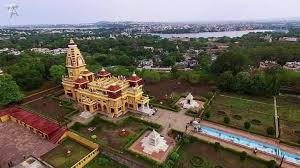In the deliberate articulation of democratic decentralization Madhya Pradesh under Chief Minister Dr Mohan Yadav’s leadership is charting a clear and ambitious course towards empowering its village governance structures. The recent announcements made at the Sarpanch Joint Front Conference at Jamboree Maidan Bhopal underscore the magnitude of authority and responsibility entrusted to the sarpanches the true architects of rural development.
When it is proclaimed that a sarpanch commands powers exceeding those of many senior elected representatives one recognizes the transformational potential vested in India’s tryst with trilateral panchayati raj. It is through these grassroot custodians that the contours of village welfare schemes take shape and development’s tangible benefits reach the common citizen.
The empowerment is not symbolic or rhetorical. Panchayats are now authorised to undertake projects worth up to twenty five lakh rupees each with substantive autonomy. This financial flexibility equips local leaders to swiftly initiate infrastructure and welfare projects that respond to their community’s unique priorities. Coupled with an assured grant of fifty thousand rupees per panchayat representative for development purposes these measures concretize the government’s commitment to vibrant local self governance.
Furthermore the cabinet’s mandate to provide offices and community buildings to panchayat institutions exemplifies a holistic vision of enabling governance beyond transactional interactions. As the government pursues initiatives like the Shanti Dham constructions and integrates agricultural industry promotion within rural zones the nexus between empowerment and prosperity becomes evident.
Addressing the recent Delhi blast tragedy with solemnity and resolve Chief Minister Yadav reaffirmed trust in the central leadership’s capability to navigate the country’s security challenges. This balanced approach to governance is emblematic of an administration steadfast in both development and vigilance.
The ongoing commitment to involve panchayat leaders in shaping cultural and economic projects such as Shri Ram Van Gaman Path reflects an appreciation of decentralized leadership enriched by indigenous knowledge and participatory spirit.
Madhya Pradesh’s trajectory affirms an irrefutable truth the destiny of a vast rural populace is inextricably intertwined with the vigor and efficacy of its panchayat system. As tradition meets modernity and governance meets grassroots grit panchayats emerge not only as administrative units but as crucibles for India’s inclusive growth and democratic flourishing.




